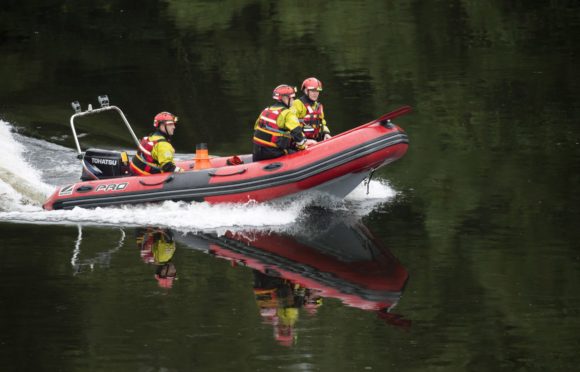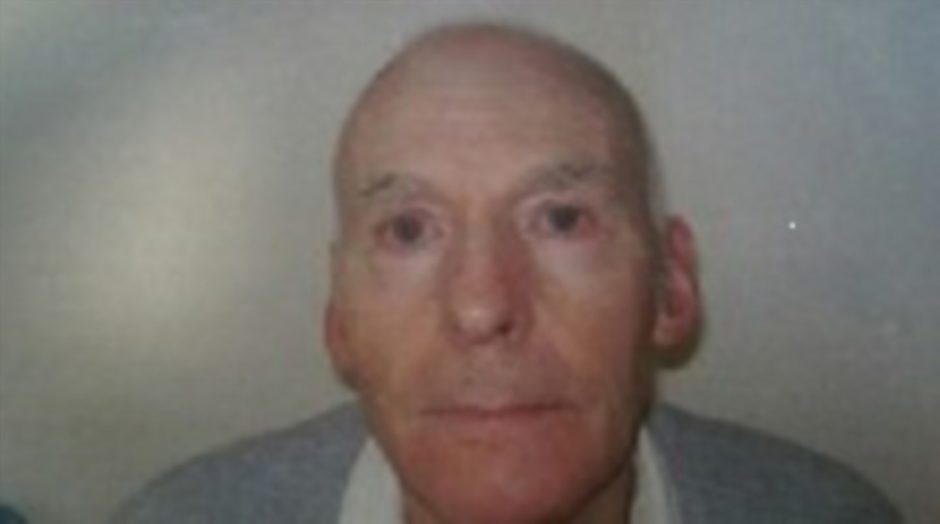A pensioner who was found dead hours after he left a psychiatric facility may have lived if nurses told doctors about his suicidal thoughts, a sheriff has concluded.
Mountain Rescue team members found the William Clark, 66, at Kinnoull Hill in Perth on July 24 2016, a Fatal Accident Inquiry at the city’s sheriff court heard.
Sheriff Keith O’Mahony heard how Mr Clark had been a patient at the Leven Ward at the Murray Royal Hospital in Perth.
He had been admitted there in May 2016 after becoming unwell.
He told a consultant psychiatrist he did not wish to “wake up” but had no plans to take his life.
However, on July 22 2016, Mr Clark asked a nurse for a gun and made a gesture as if he was going to shoot himself.
The inquiry heard that the following day, staff thought Mr Clark presented to them as he usually did.
However, he walked out of the hospital and later died at the hill.
Family questions
At the inquiry, consultant psychiatrist Neil Prentice told Sheriff O’Mahony nursing staff should have told the duty doctor at the facility about Mr Clark’s gun comment.
He said this may have led to a doctor examining Mr Clark and devising a plan which may have kept him alive.
The inquiry also heard how Mr Clark’s family feel there was a “string of failures” around Mr Clark’s care and unanswered questions remain.
In a written judgement issued on Monday, Sheriff O’Mahony wrote: “The family feel NHS Tayside have shown not only a lack of public transparency and accountability but also a lack of willingness to work positively and constructively with the family towards understanding how Mr Clark’s death came about.
“The family considered that two questions remain uncertain: firstly, how did a very sick man get out of a supervised ward without challenge or detection; secondly, why was a very sick man of slow walking steps not located in the last hours of his life.”
Specialist submissions
He said he agreed with Dr Prentice’s submissions.
Sheriff O’Mahony wrote: “He would have expected nursing staff to contact the duty doctor to have Mr Clark examined.
“He regarded the comments made by Mr Clark in relation to a gun as being a change in Mr Clark in that they represented a new and violent idea.
“Previously he had had negative ideas but now had expressly made reference to a violent method.
“I am satisfied in those changed circumstances that arrangements should have been made to contact the on-call doctor with a view to a fresh medical examination of Mr Clark’s condition and a renewed risk assessment.
“The evidence demonstrated that could have been carried out the following morning, ie the morning of 23 July 2016.
While he could not say the result of such an examination, he added: “The test imposed by the legislation is whether such a precaution ‘might realistically’ have resulted in the death being avoided. I am satisfied that test is met.”
Admission to hospital
Evidence in the inquiry was heard at Perth Sheriff Court last year.
The inquiry heard that in January 2016, Mr Clark’s wife was admitted to hospital in Dundee and he started to struggle with day-to-day tasks.
He met his GP in May 2016 and the medic concluded Mr Clark was severely depressed and was having “fleeting” suicidal thoughts.
He was later admitted to the Leven Ward at the Murray Royal Hospital.
Mr Prentice was in charge of his care. He changed his medication and Mr Clark remained as a patient there until July 2016.
After Mr Clark expressed a desire to obtain a gun, staff gave him a sedative.
Checks removed
Staff decided to check on him every 15 minutes but these quarter hourly checks were removed on July 23.
At around 8pm on July 23 2016, a nurse realised Mr Clark was no longer at the ward.
Police were contacted at 8.35pm. CCTV evidence showed that Mr Clark left the hospital at around 7.20pm.
On July 24 2016, Mr Clark’s body was found around 30 metres from the cliff at the hill.
Sheriff O’Mahony said that nursing staff did not record their assessment of Mr Clark’s behaviour on July 22.
Sheriff O’Mahony said if these steps had been taken, it would not have resulted in a guarantee that Mr Clark could have survived.
An NHS Tayside spokesperson said, “Our thoughts remain with the family and we will now take time to consider the Sheriff’s determination.“
The report was published late on Monday afternoon.













